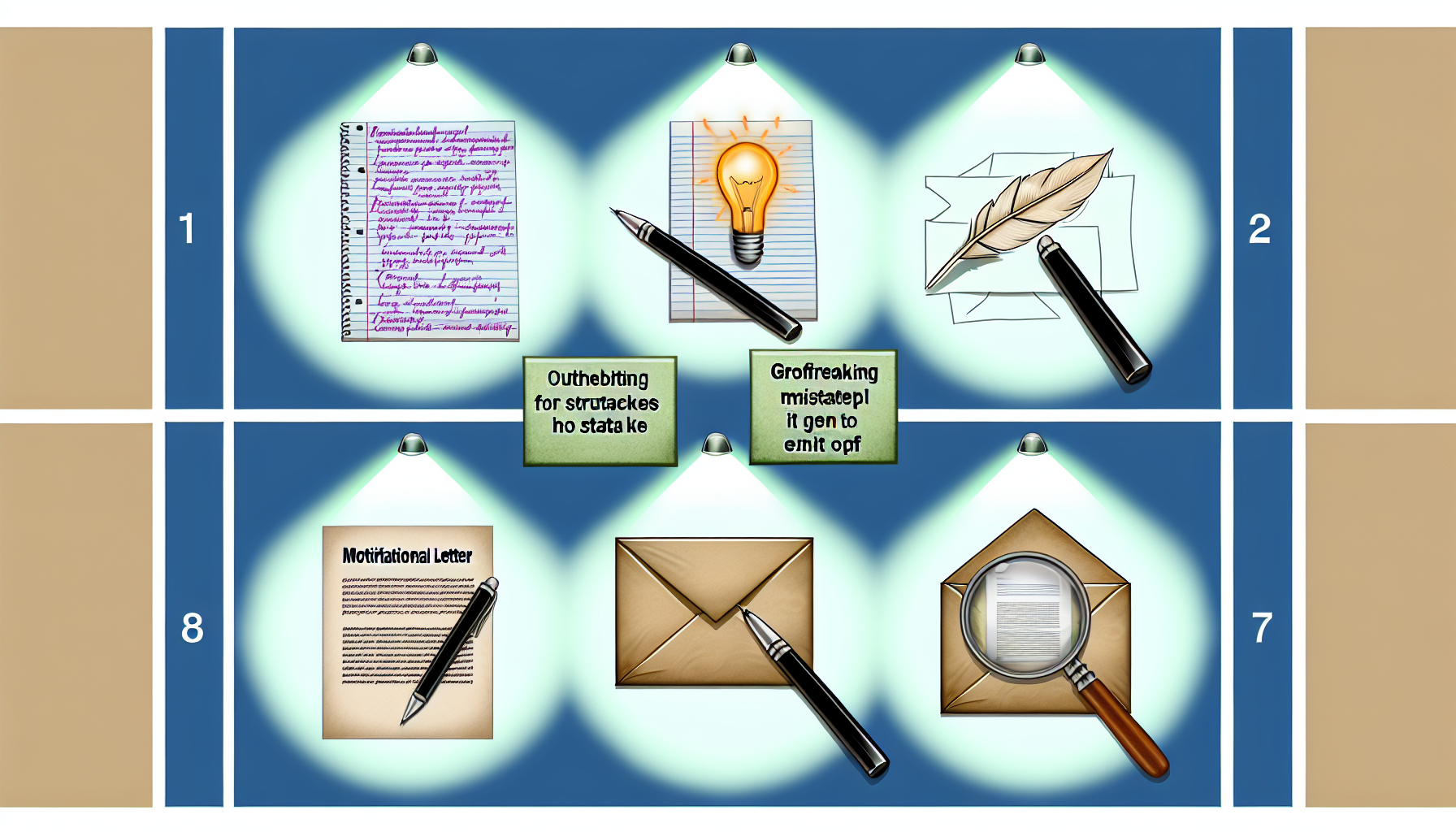Discover effective techniques for writing a motivation letter, including essential tips and examples to craft a compelling and professional document. Ideal for job applications.

Writing a motivation letter can be a pivotal moment in your career, education, or personal journey. Whether you’re applying for a job, university program, or even a volunteer position, your motivation letter serves as a key to showcase your skills, passion, and suitability for the role. It provides an opportunity to highlight why you’re the perfect fit for the program or job you’re applying to and helps you stand out from other candidates.
A well-written motivation letter can make the difference between getting noticed or being passed over. In this comprehensive guide, we’ll break down everything you need to know about how to write a motivation letter, provide actionable tips, and include examples that will help guide you through the process. Plus, we’ll show you how to optimize your letter for readability and SEO.
A motivation letter is a personal statement, written to accompany an application for a job, university program, or other opportunities, where you explain your personal interest in the role or program, your qualifications, and why you’re the best candidate for the opportunity. It’s a chance to demonstrate your enthusiasm, work ethic, and commitment, all while offering insight into your personality and background.
The motivation letter is essential because it’s your opportunity to convey your personality, character, and unique qualifications that cannot always be captured by a resume or CV. Here’s why it matters:
In essence, the motivation letter supplements your resume, providing context to your qualifications and enhancing your chances of being selected.

Before we dive into tips and examples, let’s break down the steps involved in writing a motivation letter.
Before you start writing your letter, take time to research the role or program you’re applying for. Understand the organization, the job description, or the course requirements. Learn about the values, culture, and goals of the institution or company, so you can tailor your letter to fit its needs.
A motivation letter should follow a clear structure that makes it easy to read and understand. Here’s a general breakdown:
The tone of your letter should be professional, but it’s also important to show enthusiasm. Strive to be polite and formal, but also try to infuse your personality into the writing. This can help you seem more approachable and passionate about the role.
Never use a generic motivation letter. Customize each letter to the specific position or program you are applying for. Highlight the skills and qualifications that are most relevant to the opportunity, and explain how your background fits the job or course description.
While you want to provide enough detail to make your case, a motivation letter should generally be no longer than one page. Be clear and concise, focusing on your most important qualifications and experiences.
After writing your letter, take the time to revise and proofread it. Correct any spelling, grammar, or punctuation errors. Reading your letter out loud can help you catch mistakes and ensure that your tone is just right.
Now that you know the basic structure, let’s dive into actionable tips that will help you write a standout motivation letter.
The first few sentences of your letter should grab the reader’s attention. You could begin with a brief but impactful statement about why you are interested in the position or program. For example:
“With a passion for innovative digital marketing and a commitment to driving results, I am excited to apply for the Digital Marketing Specialist position at [Company Name].”
Don’t just list your skills—explain how your skills and experiences make you an ideal candidate. Use concrete examples to demonstrate your abilities. Instead of saying, “I have excellent communication skills,” try:
“In my previous role as a content strategist, I successfully led cross-functional teams, collaborated with clients, and presented project proposals that increased customer engagement by 25%.”
Employers and universities want to know that you’re genuinely excited about the opportunity. Your enthusiasm is often just as important as your qualifications. Use words that convey excitement, such as “passionate,” “eager,” “enthusiastic,” or “committed.”
Make a clear connection between your background and the opportunity you’re applying for. Why are you a great fit? How does your experience or educational background align with what the organization or institution is looking for?
For example, if you’re applying for a position in finance and you have a background in accounting, explain how your expertise in financial analysis will contribute to the role you’re seeking.
For job applications, employers are also looking for candidates who align with the company culture. Research the organization’s mission, values, and work environment. If they emphasize collaboration or innovation, highlight experiences where you’ve thrived in similar environments.
While it’s tempting to mention areas where you’re still growing, focus more on your strengths. Use positive language to frame your experiences, and avoid negativity or self-doubt. Instead of saying, “I am still learning,” say, “I am eager to expand my skills in [area].”
Your conclusion should express gratitude and convey a desire to move forward with the application. A good closing might be:
“Thank you for considering my application. I look forward to the possibility of contributing to your team and discussing how my skills align with your needs. Please feel free to contact me at [phone number] or via email at [email].”

Here’s a sample motivation letter for a job application:
[Your Name]
[Your Address]
[City, State ZIP Code]
[Your Email Address]
[Phone Number]
[Date]
[Hiring Manager’s Name]
[Company Name]
[Company Address]
[City, State ZIP Code]
Dear [Hiring Manager’s Name],
I am writing to express my enthusiasm for the Digital Marketing Specialist position at [Company Name], as advertised on [Job Board/Website]. With a background in digital marketing and a passion for creating compelling content that drives customer engagement, I believe I am an ideal candidate for this role.
In my previous position at [Previous Company], I successfully led social media campaigns that resulted in a 30% increase in customer engagement over six months. I also developed targeted content strategies that aligned with the needs of diverse audiences, resulting in improved website traffic and conversion rates. I am eager to bring my skills in data analysis, SEO, and content creation to [Company Name] and contribute to your marketing goals.
What excites me about the opportunity at [Company Name] is your commitment to fostering creativity and innovation in your marketing team. I am particularly drawn to your emphasis on collaboration and cutting-edge digital strategies. I am confident that my ability to work cross-functionally and my passion for creating data-driven marketing solutions would make me a valuable asset to your team.
I look forward to the opportunity to discuss my application in further detail. Thank you for considering my candidacy. I can be reached at [phone number] or via email at [email]. I hope to hear from you soon.
Sincerely,
[Your Name]
Writing a motivation letter can be one of the most rewarding aspects of an application process. It allows you to show who you are beyond the bullet points of your resume. By following the steps outlined in this guide—researching the opportunity, tailoring your letter to the specific role, and using a professional yet enthusiastic tone—you can craft a compelling letter that improves your chances of success.
Always remember to keep your letter clear, concise, and error-free. Proofread it multiple times and adjust the tone based on the opportunity you’re applying for. By demonstrating your qualifications and enthusiasm, you will give yourself the best chance to stand out and secure that interview or admission.
Good luck!
Find Scholarships Offered by Countries Worldwide for Your Academic Goals.
Chose where you want to study, and we will let you know with more updates.